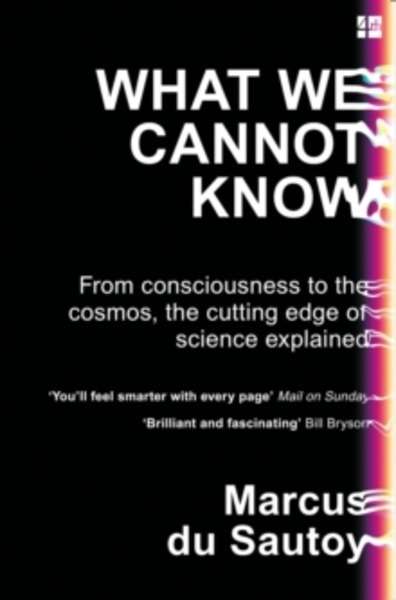What We Cannot Know
From Consciousness to the Cosmos, the Cutting Edge of Science Explained

Editorial Harper Collins
Fecha de edición mayo 2017 · Edición nº 1
Idioma inglés
EAN 9780007576593
320 páginas
Libro
encuadernado en tapa blanda
Resumen del libro
'Brilliant and fascinating. No one is better at making the recondite accessible and exciting' Bill Bryson Britain's most famous mathematician takes us to the edge of knowledge to show us what we cannot know. Is the universe infinite? Do we know what happened before the Big Bang? Where is human consciousness located in the brain? And are there more undiscovered particles out there, beyond the Higgs boson? In the modern world, science is king: weekly headlines proclaim the latest scientific breakthroughs and numerous mathematical problems, once indecipherable, have now been solved.
But are there limits to what we can discover about our physical universe? In this very personal journey to the edges of knowledge, Marcus du Sautoy investigates how leading experts in fields from quantum physics and cosmology, to sensory perception and neuroscience, have articulated the current lie of the land. In doing so, he travels to the very boundaries of understanding, questioning contradictory stories and consulting cutting edge data. Is it possible that we will one day know everything? Or are there fields of research that will always lie beyond the bounds of human comprehension?And if so, how do we cope with living in a universe where there are things that will forever transcend our understanding? In What We Cannot Know, Marcus du Sautoy leads us on a thought-provoking expedition to the furthest reaches of modern science.
Prepare to be taken to the edge of knowledge to find out if there's anything we truly cannot know.
Biografía del autor
Marcus du Sautoy (1965) estudió en la Universidad de Oxford, donde es actualmente catedrático de matemáticas. Ha sido también profesor invitado en el Collège de France y la École Normale Supérieure de París, en el Max Planck Institut de Bonn, la Universidad Hebrea de Jerusalén y la Universidad Nacional Australiana en Canberra. En 2001, ganó el premio Berwick de la London Mathematical Society. Colabora, con éxito enorme, en la televisión con programas de divulgación matemática, así como en la prensa escrita. En Acantilado han aparecido La música de los números primos (2007), Simetría (2009) y Los misterios de los números (2012).








